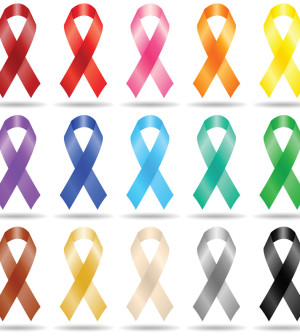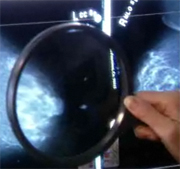- Fragments of Bird Flu Virus Found in 1 in 5 Milk Samples
- Clients Got HIV Through ‘Vampire Facial’ Microneedling Treatments
- Take the Stairs & Step Up to Longer Life
- ‘Drug Take Back Day’ is Saturday: Check for Leftover Opioids in Your Home
- Loneliness Can Shorten Lives of Cancer Survivors
- A Stolen Dog Feels Like Losing a Child, Study Finds
- Healthier Hearts in Middle Age Help Black Women’s Brains Stay Strong
- Better Scans Spot Hidden Inflammation in MS Patients
- Which Patients and Surgeries Are ‘High Risk’ for Seniors?
- Vancomycin May Be Losing Strength Against Common Deadly Infection
2 Pre-Surgery Drug Treatments Show Promise Against Aggressive Breast Cancer


FRIDAY, Dec. 13, 2013 (HealthDay News) — Women fighting an aggressive form of breast cancer may benefit from adding certain drugs to their chemotherapy regimen, and taking them prior to surgery, new research finds.
This pre-surgical drug therapy boosts the likelihood that no cancer cells will be found in breast tissue removed during either mastectomy or lumpectomy, according to two new studies.
The approach, called “neoadjuvant” chemotherapy, is being given to an increasing number of women with what’s known as triple-negative breast cancer. Currently, the approach results in no identifiable cancer cells at mastectomy or lumpectomy in about-one third of patients, experts estimate. In such cases, the risk of a tumor recurrence becomes lower.
“Chemotherapy [before surgery] does work in triple-negative breast cancer. What we want to do is make it work better,” said study researcher Dr. Hope Rugo.
Rugo is director of breast oncology and clinical trials education at the Helen Diller Family Comprehensive Cancer Center at the University of California, San Francisco.
Triple-negative cancers have cells that lack receptors for the hormones estrogen and progesterone. In addition, they don’t have an excess of the protein known as HER2 on the cell surfaces. So, treatments that work on the receptors and drugs that target HER2 don’t work in these cancers.
In two new studies, researchers got better results by adding drugs to the standard chemo regimen prior to surgery. However, both studies are phase 2 trials, so more research is needed.
Both studies are due to be presented Friday at the annual San Antonio Breast Cancer Symposium.
Rugo compared standard neoadjuvant therapy — paclitaxel (Taxol, others), doxorubicin (Adriamycin) and cyclophosphamide (Cytoxan, others) — to standard therapy plus the drugs veliparib (investigational) and carboplatin (Paraplatin).
Of the 38 women with triple-negative cancer in the study, 52 percent of those getting the extra drugs with the standard approach had no cancer cells identified at surgery, compared with 26 percent of those on the standard therapy.
In a second study, Dr. William Sikov, at the Alpert Medical School of Brown University, and colleagues compared the standard chemotherapy using anthracycline- and taxane-based drugs with three other regimens. These added carboplatin, bevacizumab (Avastin) or both to the standard regimen.
The researchers randomly assigned 443 patients with triple-negative breast cancer to one of the four groups. Those in the combination groups were more likely to have no breast cancer cells found at surgery than those in the standard groups. While 42 percent of those in the standard group had no breast cancer cells identified at surgery, 50 percent to 67 percent of those in the combination groups did not.
Genentech, which makes Avastin, funded Sikov’s study. Other supporters included the U.S. National Institutes of Health and the Breast Cancer Research Foundation.
The research presented by Rugo is funded by a variety of sources, included unrestricted funding from several pharmaceutical companies.
“Every time we have studies like this, it tells us we are on to something,” said Dr. Joanne Mortimer, director of women’s cancer programs at the City of Hope Comprehensive Cancer Center, in Duarte, Calif. She reviewed the findings. While the approaches warrant further investigation, she cautions that ”both these studies have very small numbers.”
Complicating the issue, she said, is that “triple-negative is not a single disease.” There are several subtypes, and patients respond differently to treatments. “This [research] is very interesting, but until we know which actual specific patient’s tumors are going to benefit, it’s hard to apply this to the population,” Mortimer said.
Studies presented at medical conferences are considered preliminary since they have not yet had the independent scrutiny required for publication in most medical journals.
More information
To learn more about triple-negative breast cancer, visit the American Cancer Society.
Source: HealthDay
Copyright © 2024 HealthDay. All rights reserved.









